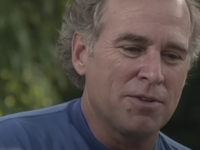Oh, Carole. “I’d rather be number five, or even number ten, and stick around longer,” a once-reluctant Carole King says in remembrance of a time when she was urged to get in gear for a solo career. “I was hoping for career longevity…”
Mission more than accomplished, it turns out. Having written or co-written 118 pop hits on the Billboard Hot 100 since she was a teen in 1959, King has had a hand writing such heavy-hitters as “The Loco-Motion,” “Will You Love Me Tomorrow,” “Take Good Care of My Baby,” “Some Kind of Wonderful,” “One Fine Day,” “Pleasant Valley Sunday,” “So Far Away,” “It’s Too Late,” “You’ve Got a Friend,” and “(You Make Me Feel Like) A Natural Woman.” Incidentally, Mother Nature should share in the royalties for the invariable predictability that “I Feel the Earth Move” gets in instantaneous radio airplay in the event of any earthquake above 3.8 on the Richter Scale.
With the four-time Grammy Award-winning songwriter also enjoying critical acclaim on top of commercial success, she’s avoided being irretrievably caught in the cogs of what another singer-songwriter — also reaching a pinnacle in the singer-songwriting ’70s era of confessional navel-gazing — termed “the star-making machinery behind the popular song.” If the ever-adventurous Joni Mitchell managed to squirm away hissing at such identification, a more outwardly equanimous and accommodating King embraced her role as an enthusiast and wellspring of indispensable — but far from disposable — pop-rock craftsmanship.
Moreover, in addition to her solo career, King’s songs have been written for or covered by a wide array of artists from the Beatles to the Strawberry Alarm Clock, Little Eva to Aretha and Amy Winehouse. The Rock and Roll Hall of Famer has had three No. 1 albums and seven Top 10 albums, the most successful being 1971’s Tapestry, which holds the record for the longest time for an album by a female artist to remain on the Billboard charts and the longest time for an album by a female to hold the No. 1 position. (Having started a job as a record store clerk in 1974 — three years after the release of the album — I can personally attest to the durability and ever-brisk sales of Tapestry, which we were constantly running out of and reordering.)
Capping off a career (which as of this writing looks to be winding down with the 70-year-old King reportedly considering retirement) is the recent album Live at the Troubadour — in which you’ve got a friendly collaboration with James Taylor — that reached No. 4 on the charts in its first week, and has sold over 600,000 copies.
Also marking some kind of wonderful career is the conversational and absorbing, though not always forthcoming and obliging A Natural Woman: A Memoir — all King, all the time, and nary an “as told to” or “written with” qualification to be had. But of course with King being so influential and at the center of many creative lives — cutting a wide swath in American music and the arts — a big chunk of social history comes with the textual territory as she helps fulfill her desire, expressed in the book’s Author’s Notes, to provide “occasional observations about how I perceived the cultural context” for her life and her art and, as it becomes clear, her social causes and environmental endeavors.
With such inclusiveness in mind, the songwriter, incisive and often self-deprecating, chronicles a bi-coastal roller-coaster career spanning decades, since her Brill Building beginnings with songwriting partner Gerry Goffin, who later became King’s husband, (the first of three). Refreshingly, Natural Woman is not a warts-and-all tell-all — though King herself has a self-deprecating manner when it comes to talking about herself — King traces a remarkable career, complemented by guarded but unflagging and seamlessly interwoven glimpses into her personal and family life, in an informal tone punctuated with a quick wit and a gift for a well-turned phrase or sardonic aside.
As might be expected, the landmark Tapestry album is the multi-chapter subject of explication from conception to record-buyer response, thorough if not entirely cohesive in the telling. At one point, there is need for an overwhelmed King — so deeply involved in the making of the album that it’s “difficult to describe those happy, productive weeks in a logical or linear fashion” — to give sway to one chapter devoted to “memory snapshots” spotlighting random scenes that “remain vibrantly alive.” As is the case throughout Natural Woman, King is quick and generous in sharing credit for the success of the album beyond quality of songs and “integrity of presentation,” pointing to the “timing of its release, an extraordinary confluence of good luck, and the determination of [producer] Lou Adler to ensure that the album would be heard by as many people as possible.” Not a problem. She also remarks upon the a little sociological significance in regards to “The Me Decade” timing of Tapestry’s 1971 release “at a time when people were beginning to turn inward to explore the emotions about which other songwriters and I were writing.”
It’s an especially noble quality, as “old rock and rollers never die; we just lose track of time,” according to King at one point after describing a “brushes with Brian Wilson” moment backstage at the 2000 Songwriters Hall of Fame, when these particular 58-year-old pop music ancients bonded in a kind of search of the lost chord (good album title!) — often called the Carole King chord — that figures in prominently in the compositions of both writers. In fact, King, in praise of the Beach Boys, speculates that the chord should be just as well be called the “Brian Wilson chord,” in part due to its sonic significance as the climactic chord in “Good Vibrations.”
A little of those nasty vibes, however, enter the picture as King also succeeds in her personal goal of meeting all of the Beatles, with predictable results: Paul is magnanimous and charming, John is rude and boorish after King had “proffered a face of friendship and he responded with a figurative slap.” This, after Lennon and McCartney had maintained early in their career their goal of becoming the next Goffin and King of the United Kingdom. The always dicey prospect of meeting your heroes goes better with Bob Dylan, who in 1995 had invited King to fly to London for the specific intent to write songs together. As promising as that had sounded, the session proved to be one of “more talking that writing” but it was a positive experience and before she left Dylan invited King to join him live onstage that night. It’s a chance the once stage-frightened King may have earlier balked at, but now — having come around to the idea that “performing wasn’t something to fear; it was merely a larger circle of collaboration — she jumped at the chance, especially when, “as if I needed extra persuasion, he said ‘Elvis and Chrissie are gonna do it.’”
Such opportunities as singing backup with Elvis Costello and Chrissie Hynde certainly added dimension and excitement to Carole King’s life, and they hold up in the retelling, just as other path-crossing encounters in her lime-lighted calling makes for illuminating and entertaining episodes and vignettes. But Natural Woman is just as often effectively tempered by other options and escapes, such as the local color of quiet times and a slower pace offered by the kind evocative of her Idaho mountain home, to which she moved to in her “escape from the fast lane” (and, though this is just conjecture, from the hell of those Pleasant Valley Sundays in “status-symbol land”).
And of course, there’s no refuge when more tragic turns drain the color of life. A bipolar Gerry Goffin increasingly suffered the ravages of mental illness and drug use, including the damage done by his abuse of LSD that eventually left him with only “intermittent periods of lucidity, creativity, and wisdom.” As King succinctly puts it, “people on acid found it difficult to function in a world dominated by people not on acid.” She would however, when treatment after treatment failed, be urged to make the “agonizing decision” to authorize electric-shock therapy.
More violent problems arise in the book’s most harrowing account, when King’s third husband Rick Evers, who with no discernible talent but many delusions of artistic grandeur convincing him that he could ride King’s coattails to a successful music career, insinuated himself more and more insistently into an the professional life of the admittedly love-blind King. When he became physically abusive — he hit her and it didn’t feel like a kiss — King fooled herself for too long into thinking he could change or that she could change him, and when the downward spiral descended into further darkness, she grabbed her children and got away. Finality and relief only truly came with the imminent death of Evers of a cocaine overdose.
It’s a story that has to be told, a song to be sung — along with the brighter or more encouraging fare like “One Fine Day,” “Up On the Roof,” “Sweet Seasons” “You’ve Got a Friend” and “Jazzman.” I’m not sure if “The Porpoise Song” really needs to be heard — that’s perhaps best left on the soundtrack to The Monkees’ Head — but a rundown of Carole King songs, whether playful or contemplative, brings to mind one weakness of Natural Woman: As the memoir of one of America’s most prolific and preeminent songwriters, it would have been beneficial and enjoyable to have read more about King’s songcraft and her creative process — to get a little background behind various hits, any special circumstances, the dirt or the inspiration, whatever the case may be. What especially got short-shrift were fuller accounts of King’s early years, her emergence from teen prodigy to pro composer. Furthermore, songs seem to spring forth fully formed; we’re rarely let into details of the creative entreprise. King may have been from time to time at a disadvantage due to a reliance on lyric-writers, and there may little emotion behind “Loco-Motion,” but by the time of Tapestry she was doing enough of the the wordsmith-wrangling that would warrant a little back story here and there.
Maybe the ink that was used to explain what LPs and 45s are, and the detailed description of how automatic turntables work, as well as the history of cassette tapes and 8-track tapes (what — no 4-track or Quad?), could’ve been put to a better song-centered use. As it is, an account of the rise and fall of the music-playing relics of the past just makes me feel some kind of old.
[amazon_enhanced asin=”1455512613″ container=”” container_class=”” price=”All” background_color=”FFFFFF” link_color=”000000″ text_color=”0000FF” /] [amazon_enhanced asin=”B00000J2PH” container=”” container_class=”” price=”All” background_color=”FFFFFF” link_color=”000000″ text_color=”0000FF” /] [amazon_enhanced asin=”B0039TD7PY” container=”” container_class=”” price=”All” background_color=”FFFFFF” link_color=”000000″ text_color=”0000FF” /] [amazon_enhanced asin=”B006MU32C0″ container=”” container_class=”” price=”All” background_color=”FFFFFF” link_color=”000000″ text_color=”0000FF” /] [amazon_enhanced asin=”B007EM6FTW” container=”” container_class=”” price=”All” background_color=”FFFFFF” link_color=”000000″ text_color=”0000FF” /]
A Natural Woman: A Memoir
by Carole King
Hardcover: 496 pages
Publisher: Grand Central Publishing (April 10, 2012)
Language: English
ISBN-10: 1455512613
ISBN-13: 978-1455512614
- Almost Hits: The Kinks, “Waterloo Sunset” (1967) - February 26, 2013
- Books: Rock ‘n’ Roll Billboards of the Sunset Strip, by Robert Landau (2013) - February 16, 2013
- Pete Townshend, ‘Who I Am: A Memoir’: Books - November 6, 2012




